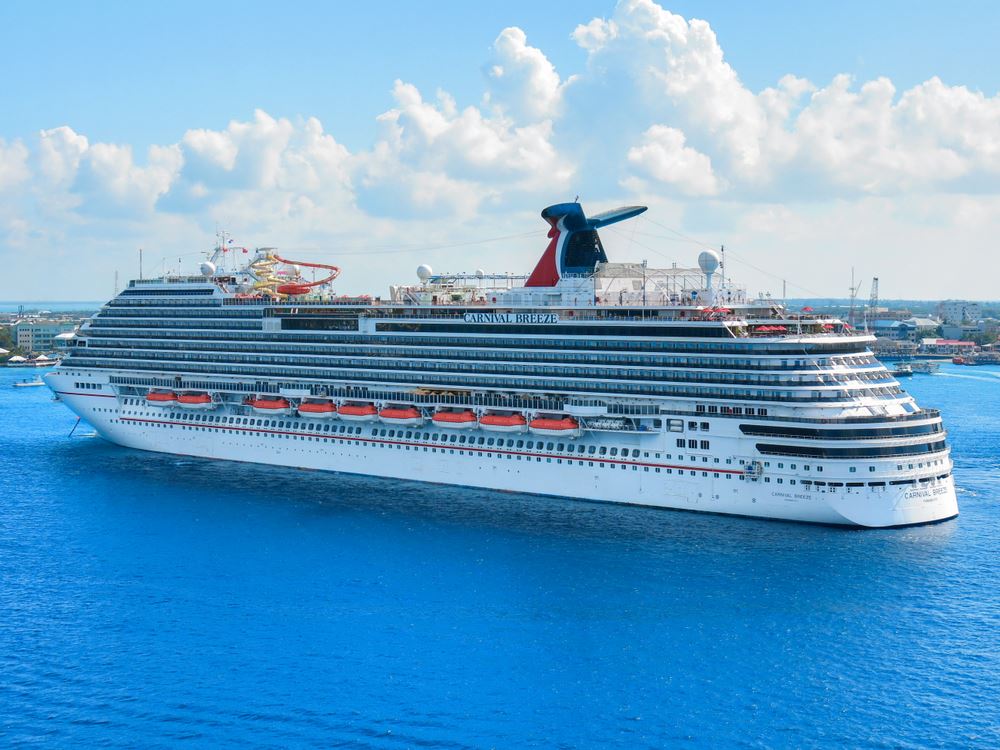Carnival Looks to Keep Passengers Happier at Sea With IoT

Carnival Corp. introduced a Star Trek communicator-like device called "the OceanMedallion," which it intended to deploy on its Princess Cruises fleet. While you can't slap your chest and call the Enterprise bridge with it, the token does let you unlock your stateroom, order drinks, and help housekeeping staff keep track of whether or not your stateroom is occupied. It's been two years since that announcement, and the OceanMedallion has not only become an important part of Princess Cruises' offering, it's also an excellent case study in how to use technology to enhance your customer's experience.
PCMag boarded the Caribbean Princess at the Brooklyn Cruise Terminal in New York for a tour of the ship. John Padgett, Chief Experience & Innovation Officer at Carnival, provided us with an update on the implementation of the OceanMedallion and Internet of Things (IoT) architecture around the ship.
Since the 2017 announcement, Princess Cruises has been deploying the OceanMedallion on several of its cruise ships. While the Caribbean Princess was the first ship fully outfitted with the device, the company has four ships now using it. That's partially because deployment is a lengthy process as it involves not only the technology component, but a whole new service tier to support it, called the MedallionClass service. The company said it will launch a fifth ship in the series, the Sky Princess, in October 2019, and another six ships with MedallionClass will be introduced in 2020.
The Ocean Medallion eases the embarkment process and lets passengers pay for items around the ship.
While the OceanMedallion is a nifty device, what's important to Carnival Corp., is the MedallionClass service, because its goal is to maximize the company's customer experience. Weighing just 1.8 ounces and coming in at about the size of a US quarter, the OceanMedallion enables MedallionClass by connecting customers with the ship's various services in a very personalized way regardless of where they are on the vessel.
Customers receive the OceanMedallion in the mail prior to their arrival on the cruise ship. They can wear it as a pendant, in a clip, on a sports band, or on a bracelet. Tech consulting firm Nytec designed and built the hardware as wearable IoT tech designed specifically to connect to Princess Cruises' shipboard sensor and data network. Matter, a design and innovation firm acquired by Accenture in 2017, also helped design the platform. The device offers no interactivity of its own, appearing as just a burnished aluminum token emblazoned with the cruise line's logo and laser-etched to show the passenger's name, the ship's name, and the sail date.
There's no screen or switch, just the token. Inside, however, the OceanMedallion contains micro antennas that enable both Near Field Communication (NFC) and Bluetooth connectivity, which allow it to "talk" to the wide variety of sensors, kiosks, and other connective devices that Carnival has deployed throughout its MedallionClass ships. Carnival claims that the OceanMedallion is "waterproof, sunproof, and sandproof," but it offers similar protection from the elements as a common smartphone.
What makes the OceanMedallion so attractive to Carnival isn't just its connective capabilities; it's that it enhances the customer's experience while at the same time simplifying it. Before cruise ships offered medallions, they would offer cruise cards, a form of ID on a boat that allowing customers to pay for items with enabled point-of-sale (POS) devices. They might also offer swipe cards, keys, and other devices each synced with different ship services. MedallionClass does away with that, allowing the customer to carry just one token, the OceanMedallion, while still being able to interact with every customer-facing aspect of the ship from the passenger's cabin door to all the popular games in the casino. Carnival offers a cruise ship card to passengers who decline an OceanMedallion, but Padgett said they often request the chip after a couple of days on the ship.
By incorporating tech like the OceanMedallion, Carnival aims to eliminate friction in the passenger experience, according to Padgett. Although Carnival offers a connected IoT experience on the ship, the company's goal is to minimize the obtrusiveness of the tech. By eliminating friction, "guests can be freed up to enjoy the experience more and [therefore] consume more experiences," Padgett said.

